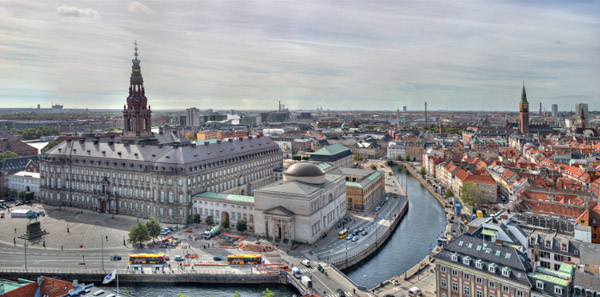 The City of Providence, Department of Planning and Development invites you to a series of conversations about your priorities for housing and community development needs throughout the city.
The City of Providence, Department of Planning and Development invites you to a series of conversations about your priorities for housing and community development needs throughout the city.
The Community Development Division will be gathering the input from these meetings and using it to shape future spending and project priorities and to update the City’s Consolidated Plan – which guides the city’s spending on housing and community development.
Some of the topics covered will be: affordable housing; homelessness; senior services; parks and recreation; services for families, adults, and children; accessibility and mobility; persons with HIV/AIDS; lead paint and other unhealthy or unsafe housing issues; economic development; and public safety.
PLAN TO PARTICIPATE AND MAKE YOUR VOICE HEARD!
| Date | Time | Location |
| Tues. March 3 | 6:30pm | Webster Avenue School 191 Webster Avenue |
| Wed. March 4 | 6:30pm | Fox Point Boys & Girls Club 90 Ives Street |
| Tues. March 10 | 6:30pm | West Broadway Neighborhood Assn. 1560 Westminster Street |
| Wed. March 18 | 6:30pm | SWAP 500 Broad Street |
| Tues. March 24 | 6:30pm | Washington Park Community Center 42 Jillson Street |
| Mon. April 6 | 6:30pm | DaVinci Center 470 Charles Street |
| Thurs. April 9 | 6:30pm | Dr. Martin Luther King School 35 Camp Street |
To RSVP, please contact Donna Miele at dmiele@providenceri.com.
Please complete our Community Needs Survey:
http://tinyurl.com/ProvidenceCDBGSurvey.
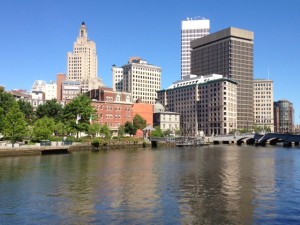
Recently, it was reported that Providence has the 5th highest residential occupancy rate in the country. This is good and bad news.
The good news is that an occupancy rate of 96.3% represents strong residential demand for Providence (this was validated by the market study of the Superman Building conducted by 4Ward Planning). This is likely because not much has been getting built in Providence since the housing market collapsed in 2006 (notable exceptions are the Providence G and the Arcade micro-lofts; my understanding is that the demand for these units is immense, particularly for the micro-lofts because of their affordability). But the bad news is that a high occupancy rate increases rental prices and is indicative of an undersupply of residential rental units. Between 1980 and today, the city’s population has grown from 156,804 to 178,432, a growth rate of almost 14% (admittedly the population of Providence is still much lower than the high of over 250,000 during the 1930s-1940s).
From my perspective, though, the high occupancy rate is a huge opportunity for Providence and the state. Downtown/urban living is in high demand nationally, and Providence is no exception. Increasing residential density downtown, particularly by building on underutilized surface parking lots, would be a huge boon for the restaurants and retail shops that exist there and will create new vibrancy in an area of Providence that can sometimes seem a little bland. It would also be hugely beneficial for the city as more residential units = more property taxes. I say this BECAUSE residential demand is so strong. If it weren’t, there would be no reason to build.
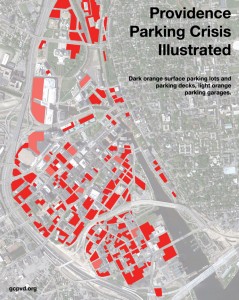
Making downtown Providence a more affordable place to live for young and mid-career professionals who are accessing Boston’s labor market would be a smart investment. I personally live downtown and work in Boston and take the commuter rail for my morning commute (along with hundreds of others). By doing so, I bring in external money into the city and state’s economy (i.e., my wages are paid by a Boston firm, but most of my disposable income in spent in Providence and the rest of Rhode Island). Increasing the supply of residential rental units within walking distance of the Providence train station will generate revenue for the city (via property taxes) and the state (via sales and income taxes).
People smarter than me have suggested that the overall lack of building residential rental units downtown has to do with the high cost of construction (costs are roughly the same as in Boston or Hartford), the ridiculous parking requirements (1.5 spots per residential unit), the height restrictions (most of downtown is limited to 100 or 120 feet), and the relatively modest rents that can be charged for rental units compared to other rental markets (average rental rates for downtown Providence are about $1,300 compared to $2,000 in Boston).
The minimum parking requirement of 1.5 spots per unit is particularly onerous. If we want more walkable neighborhoods, and more cost effective construction, this ordinance needs to be significantly changed. High parking minimums make construction more expensive by having to build garage parking to accommodate automobiles, even for those people (like myself) who do not own a car. These parking garages take up a lot of space and don’t deliver all that much value (a 70 square foot parking space may generate about $100/month while 70 square feet of living space is much more valuable). Further, the excess area required to allow for drive-in and out is simply wasted space.
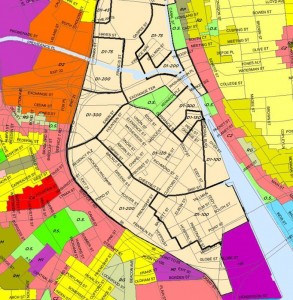
Similarly, most of downtown is restricted to about 100 or 120 feet maximum height (here’s a link to Providence’s zoning map). Depending on the ceiling height for the residential units, this limits construction to about 8 to 10 stories. If a developer is limited to 10 stories, and is required to put 1.5 spots for every unit, the economics for positive net return become very difficult. Closer to Rt. 95, a developer could build up to 200 feet high, and there is a small section of downtown that is zoned at 300 feet, but is occupied by the Convention Center, the Civic Center (or “the Dunk” as it is now affectionately known), the Omni Hotel, and the Residences. The surface lot across from the Hilton Hotel seems to be the only parcel that could be a prime parcel for a large tower, although its footprint is fairly small. Generally, the higher a developer can build, the more units that can be built, and the less space is taken up by parking, the more residential construction will happen. And an increase in rental housing supply brings down the cost of rental housing, as recently happened in Boston’s Seaport District.
As part of Providence zoning review, hopefully the parking mandate and the height restrictions will change (disappear). I personally like the Miami 21 zoning code that breaks through the rigidity of specifically designated land-use districts (like what Providence currently has) and adopts a form-based code that allows for organic changes in land use based on elements of walkability, the relationship between and among buildings and streets, and transitioning neighborhoods to accommodate growth and change based on what actually makes sense versus being restricted by a particular use that was set decades ago. Providence should really consider this.
Portland (of course) has been excellent when it comes to creating a bicycle friendly city, and it set another high bar for residential density when a 657-apartment project being developed in the Inner East neighborhood just outside of downtown Portland will have 1,200 parking spaces for bicycles rather than the almost 1,000 parking spaces that would be required in Providence. I imagine Providence doing something like this to minimize the wasteful impact of overly abundant car parking and making downtown living an attractive and AFFORDABLE option for all income levels.
But how does it get done? The city can be a partner by helping facilitate zoning variances to reduce the parking requirement and to build taller. To subsidize the cost and make the units affordable for low-income and average people to live there, the developer should access federal Historic Tax Credits and Low Income Housing Tax Credits. Building near the train station is ideal since access to Boston’s labor market is a huge incentive. More people living downtown means a more vibrant and commercially dynamic downtown.
]]> “Buy Local” is a catchphrase used ubiquitously throughout the country. Virtually every community has initiated their own buy local campaign. Here in Little Rhody, we have “Buy Local RI,” a little website set up by Lt. Governor Roberts that has since become irrelevant. There are other initiatives too, such as It’s All in Our Backyard, Buy with Heart, Union Bucks, and Small Business Saturday, that seek to direct spending to small and locally-owned businesses rather than “large box” retailers.
“Buy Local” is a catchphrase used ubiquitously throughout the country. Virtually every community has initiated their own buy local campaign. Here in Little Rhody, we have “Buy Local RI,” a little website set up by Lt. Governor Roberts that has since become irrelevant. There are other initiatives too, such as It’s All in Our Backyard, Buy with Heart, Union Bucks, and Small Business Saturday, that seek to direct spending to small and locally-owned businesses rather than “large box” retailers.
This all makes sense and I can appreciate the importance. Fundamentally, when local dollars are spent locally, they recirculate in the economy. Or to put it conversely, every dollar that is spent outside of the state is a net loss of overall wealth for Rhode Island. Similarly, every dollar spent at a national chain (even if local) suffers from leakage as our economic system peels off layers of surplus value to pay shareholders, CEOs, advertising, etc. that drains wealth from a community. You get the picture.
While I support the whole concept of buy local, it is really low impact and based more on the individual consumer’s purchasing decisions. “Should I get my tools and supplies at Mt. Pleasant Hardware, or should I go to Home Depot? Should I get my copy of Debtors’ Prison: The Politics of Austerity Versus Possibility at Symposium Books downtown, or should I just order it from Amazon?” Many people choose the latter in these scenarios. With limited take-up of “buy local,” the benefits remain small.
What can work much better is strategic sourcing from large local institutions. This can include universities, hospitals, large corporations (I’m looking at you CVS, Fidelity, and GTECH), and city and state governments. [Note: it’s important to remember that all this can be done without a local purchasing preference policy which Rhode Island policymakers rejected a few years ago at the request of large contractors due to the danger of reciprocity in other states.]
A lot of my work involves strategic sourcing and when done right the results are hugely beneficial for local, small, minority, and women owned businesses. And it benefits the state too as more purchasing done locally = more tax revenue. It’s not easy to do (nothing is), but if one looks at a hospital (or system like Lifespan), the amount of money they spend in any given year is huge, similarly for universities, for city governments, and for corporations.
The state can be a partner in the strategic sourcing process by helping identify local businesses that can serve as vendors for large institutions that currently buy large quantities of goods and services out of state or overseas. Imagine if the RIEDC RI Commerce Corporation convened a roundtable of all the executive leadership from each of the state’s hospitals, sought to understand their purchasing needs, identified mutual pain points, and proactively identified, recruited, and scaled local businesses to serve the needs of these institutions. Linking local suppliers to local buyers is a low cost way to boost the economy.
Sounds far-fetched, but I do this often at work. Recently, I assisted with Johns Hopkins University’s initiative to increase their local spend by 10% in Baltimore, developed a local sourcing plan for a Los Angeles Hospital, and analyzed the success of Source Detroit, a program to transfer a portion of the $1.6 billion dollars spent annually by Wayne State University, the Detroit Medical Center, and the Henry Ford Health System to locally owned businesses.
The process is basically to find out what an institution buys and then identify local businesses that can supply it instead. There are challenges, however. First and most importantly, you need commitment and buy-in from the senior executive leadership at the institutions. There are lots of good ideas out there and quick-win solutions that would boost the state’s economy, but without the commitment, nothing is going to happen.
Second, not everything can be sourced locally so you need to be selective. This is the fundamental difference between a generic buy local campaign and strategic sourcing. Identifying the high-spend categories that are available in the local market is important and will make the process flow smoother. Not everything is made here, and if it’s not made here, it can’t be purchased here. Luckily though, Rhode Island still makes a lot of stuff.
Third, you have to overcome the existing practices of the purchasing managers. Relationships take time to build, and switching to a new vendor can involve some risks. These risks can be partially alleviated by starting slow and by identifying quality local supplies used by other institutions. There is a process that works to change the purchasing habits and long-standing relationships, but it takes time.
Fourth, sometimes local suppliers don’t have the cheapest per product cost. When businesses operate with a shortsighted focus on low prices, local suppliers lose even though they may still have the lowest overall cost. There are many hard and soft procurement costs that are often ignored such as transportation fees, legal fees, late deliveries, damaged product, etc. that would not accrue from local vendors.
Finally, many small businesses need help building their capacity to be able to handle the procurement needs of a large institution. Here is another role for the state and partners to play to ensure that the local businesses can effectively provide the goods and services needed by large institutions. Small business support organizations like the Small Business Development Center and SCORE can offer the training and resources needed.
Why is strategic sourcing important for the state? There are three key reasons.
- It benefits the local community. When institutions source locally, local revenues increase, resulting in higher tax revenue for the state, and the increased demand may lead to the creation of new jobs. By identifying minority and women-owned firms, or firms located in low-income areas of the state, strategic sourcing can have profound positive impact for some of the most economically marginalized folks among us.
- It benefits the institution. Local goods and services can reduce delivery times, allow for lower overhead costs (you don’t need to store as much when the supplier is 15 minutes away), and reduce potential disruptions in the supply chain.
- It strengthens the entire business community. By shifting spend to local vendors, large institutions improve the local business ecosystem and generate a more robust and competitive network of suppliers. Having local suppliers also means interactions are easier and quicker, and the partnerships can develop new ways to identify and rectify supply chain problems, create new products and processes, and add innovation to the whole system. Also, by shifting to local purchasing, local vendors become more adept, more responsive, and more stable over the long-term.
If I was a Mayor or Governor, I would create a position in my administration specifically tasked with building and supporting these relationships. There is a net benefit to the state with the minimal cost of an FTE position in the budget. The benefit to a city is less, although new business expansion would provide additional property tax revenue. To do it right, you need someone competent who can facilitate these connections, hold conferences and convenings, and identify the local businesses that can act as vendors.
Alternatively, this could be done outside of government by any trusted third-party (i.e. RI Foundation, Chamber of Commerce, RI Black Business Association, etc.).
This is the 2nd in my ongoing economic development series called “Rebuilding Rhode Island’s Economy.”
]]>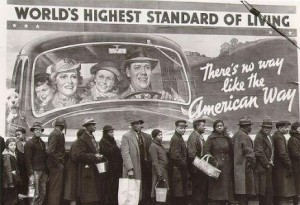 I am of the mind that the biggest issue facing the state right now is the sluggish economy. I know many share this belief. With that in mind, I will be focusing my (unfortunately limited) time writing specifically on creative strategies to improve Providence’s and the state’s economy, and thinking about it from the perspective of the upcoming gubernatorial and Providence Mayoral campaigns (i.e., what do the candidates have to say about what I write?). Before I delve into specific suggestions, I believe there are a few items relevant to economic growth that need to be clarified at the outset.
I am of the mind that the biggest issue facing the state right now is the sluggish economy. I know many share this belief. With that in mind, I will be focusing my (unfortunately limited) time writing specifically on creative strategies to improve Providence’s and the state’s economy, and thinking about it from the perspective of the upcoming gubernatorial and Providence Mayoral campaigns (i.e., what do the candidates have to say about what I write?). Before I delve into specific suggestions, I believe there are a few items relevant to economic growth that need to be clarified at the outset.
First, there isn’t much the government can do to improve the economy directly, particularly in this climate of economic distress and innovation paralysis. When the economy is running smoothly, most folks want the government to “stay out of the way.” But when the economy tanks, policymakers are the first to be blamed (this is a disingenuous and undeserved complaint), and everyone wants them to “fix it.” First, you can’t have it both ways people. Second, there is no magic solution to “fixing” the economy.
Second, economic growth takes time, commitment, alignment on a vision, and the autonomy to make things happen. It is unlikely to see radically positive results in a few months or even a couple years. Economic development is a decades-long strategy, that often requires partnerships and long-term planning that are challenging for public officials, policymakers, and civil service staff. While the pain of recessions, joblessness, and foreclosures is real, there are often few options for state and local officials to ease that pain.
Third, everything matters to economic development: education, transportation, infrastructure, workforce, land-use, zoning, existing markets, history, taxes, regulations, natural assets, etc. But each of these matter to varying degrees depending on the industrial sector and individual businesses. To assume that “lowering taxes” or “reducing regulations” is the most important of considerations is foolish, ill-advised, offensive, and immeasurably distracting from the various other issues that are generally much more important for long-term economic success. While everything is important, some things are more important than others.
 Fourth, every strategy comes with trade-offs and there are always winners and losers with any policy change. Typically, those with wealth and power can influence policy to their benefit. And while this may benefit them personally, or as a group, there are long-term consequences for the economy that are generally ignored. The incremental policy decisions that have been made in the past have led to our little state to lack the sufficient resiliency to bounce back from the recent and ongoing depression/recession. The economic conditions in which Rhode Island finds itself will take many, many years to rectify.
Fourth, every strategy comes with trade-offs and there are always winners and losers with any policy change. Typically, those with wealth and power can influence policy to their benefit. And while this may benefit them personally, or as a group, there are long-term consequences for the economy that are generally ignored. The incremental policy decisions that have been made in the past have led to our little state to lack the sufficient resiliency to bounce back from the recent and ongoing depression/recession. The economic conditions in which Rhode Island finds itself will take many, many years to rectify.
Fifth, demand for goods and services drives the supply of goods and services. If no one wants to buy stuff, stuff doesn’t get made, and people lose their jobs. Most tools that are deployed by cities and towns and the state try to stimulate the economy do not address economic demand, and as such they are largely inefficient and/or ineffective.
Sixth, underlying everything is an often ignored but crucial criterion: the importance of inclusive and dispersed economic growth. The benefits of economic growth need to be broadly shared because the more people who earn money, and the more money that they earn, the higher the level of economic growth. When economic growth benefits a small (and shrinking) number of people, aggregate demand declines and the economy suffers. When a rising tide actually lifts all boats, something that the post-WWII economy was notable for, everyone benefits. When a growing number of boats are chained to the bottom of the ocean, as has been the experience from the mid-1970s onward (with a notable exception during the 1990s), the economy flounders, people fall deeper in debt to maintain their standard of living, and the economy slows.

Seventh, the ONLY way the state (or any state, region, city, etc.) can be successful in the long-run is by improving its competitiveness in particular economic areas. This can be done by increasing the productivity of existing businesses through innovation or better trained employees or achieving higher workforce participation rates, while ALSO supporting the high and rising wages and living standards of Rhode Islanders. Period. This is hard to do, but not impossible. The role the city and state can play is to lay the groundwork for an iterative process of successive improvements to support business productivity gains and assist with the dispersion of economic benefits.
Eighth, when we discuss economic development, it’s important to differentiate between locally-traded clusters, sectors, and industries and those that are subject to larger markets, regional, national, or global in scope. The first group includes restaurants, local health services, residential housing construction, etc. while the second group includes software development, manufacturing, higher education, etc. The success of the first group is largely dependent upon the success of the latter. To put it another way, an economy can only grow by exporting lots of high-value goods and services and bringing in money to the state from other parts of the country / world. The degree to which the economy is exposed to and successfully competes in global markets is the single largest factor that explains how successful its local economy is. This isn’t to say that the local economy isn’t important, just that everyone selling hamburgers to each other does not grow the economy.
Finally, businesses grow at various points over their lifecycle. The only businesses that are guaranteed to have net positive job growth are new businesses, for the obvious reason that they will employ at minimum the owner of the business and they have no current employees to let go. Many businesses grow to a certain size and stay there for their entire existence. Many businesses have dramatic fluctuations in their employment based on seasonal or market demand. Some businesses have limited but sustained growth. And only a few businesses experience pronounced growth, and that growth is generally limited to a short period of time. All of this is important when it comes to growing jobs because there are only limited opportunities to identify and support existing businesses during their growth phases. But the opportunities are innumerable to support new business growth, and it is new business startups that have been responsible for net new job growth in the past decade.
There are additional factors that contribute or impede economic growth, but in my mind, the 9 above are of paramount importance. Feel free to bookmark this post as I will update it as I begin listing specific strategies to Rebuild Rhode Island!
]]>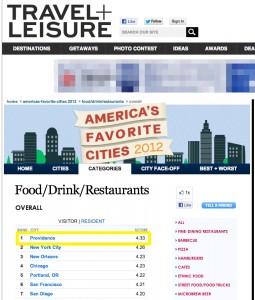
Recently, Johnson & Wales University President Mim Runey shared with the Providence Journal the university’s efforts to help grow the city’s thriving food cluster. She highlighted a few stats that show how RI’s food cluster has grown over the last decade, contributing to the local economy:
- Industries involved in “purchased meals and beverages” grew from $1.6 billion to just under $1.8 billion.
- Industries in “accommodations” grew from $286 million to $416 million.
- Jobs in food services and drinking places grew by 10 percent.
- Jobs in accommodations grew by more than 8 percent.
- Jobs in food and food-related occupations grew by 9.3 percent.
I was fortunate enough to be on the project team when the Initiative for a Competitive Inner City and Next Street worked with JWU leadership as JWU thought strategically about how to better position itself as a key leader in the food cluster. JWU is exploring innovative opportunities in all business components of the cluster, including marketing, entrepreneurship and new business development. While JWU continues to be a key contributor to Providence’s food cluster growth, there are also many other reasons why Providence can (and should) be a leader in food.
Providence’s food renaissance began emerging over many years, beginning with the proliferation of community farms and farmer’s markets across the state. Not unlike many regions of the country, consumers in Rhode Island became increasingly conscientious of healthy food and sustainable agriculture. While the Southside Community Land Trust began in 1981, demand for local and organic food grew in earnest throughout the late 1990s and early 2000s. Farm Fresh RI was created in 2004 to support the local food system by building capacity along the entire food value chain: producers, markets, and consumers. Today, the state ranks as one of the highest for direct sales specifically because of the success of the many farmers markets, stands, and CSAs. There are over 600 farms in Rhode Island, and at least one farmers market in every town. The system of farmers markets in the state has driven over 40% of the growth in the agricultural economy over the last 10 years. Many JWU faculty and alumni are known for using locally-sourced ingredients for classroom instruction and at RI restaurants owned and operated by JWU culinary experts.
In no small part, the advocacy and leadership of the RI Food Policy Council was a boon for local farmers, including the Rhode Island Food Assessment, “a comprehensive resource for stakeholders throughout the state who are working to strengthen the Rhode Island food system … [to] move food from Rhode Island farms and fisheries to consumers in all Rhode Island communities.” The Council focuses on increasing access to local healthy food, increasing the production of and demand for local food, promoting sustainability, and generating equitable economic opportunities for all Rhode Islanders. Additionally, the Rhode Island Agricultural Partnership’s 5-year strategic plan is aligning the efforts of the state’s agricultural producers and creating a single vision for agriculture in Rhode Island.
But the food cluster is more than community gardens and farmers markets. Providence has also developed a very dense food truck scene over the past 4 or 5 years. It can be argued that Providence started the mobile food trend when Walter Scott created the first horse-drawn diner wagon in 1872. The Haven Brothers Diner has had its perch next to Providence’s city hall since the 1950s. More recently, dozens of new food trucks have popped up offering an assortment of foodstuffs that is dizzying: wood-fired pizza, Korean BBQ, grilled cheese sandwiches, tacos, mac ‘n cheese, pulled pork, pudding pops, and cupcakes to name only a few. The expansion of mobile food choices is providing food entrepreneurs opportunities to enter the food business with minimal capital costs.
Additionally, the entire food distribution system is changing with the recent creation of Market Mobile, an online ordering and delivery system that connects farms to restaurants, grocers, schools and hospitals around Providence, Newport, Westerly and the Boston metro area. In 2012, family farmers and producers sold $1.5 million of local food through Market Mobile, a 50% increase from 2011.
The Farm to School initiative fosters healthy eating habits in children and every public school district in the state participates to some degree. In the 2011-2012 school year, the state’s public schools spent $175,000 on food from RI farmers, about 250,000 pounds of locally-grown produce and milk. In 2013, Farm to School is expanding its reach to connect farmers with pre-K, private schools, colleges, and hospitals. One challenge to scaling these programs is the distribution channels of the food service companies that currently service institutions in the state. School districts, however, can and should increase local procurement requirements upon renewal of food service contracts.
Additional innovations in the food cluster are on the horizon, including a permanent, year-round Public Market in Providence that will include a wholesale aggregation and distribution center, public kitchen space, a kitchen incubator, and a nutrition classroom. There is an enormous shared value opportunity for JWU to support and benefit from this endeavor and creating innovative new pathways for JWU graduates.
Johnson & Wales University and its Culinary Arts program is a strong key player in Providence’s growing food cluster, enmeshed in an ecosystem that supports and reinforces it in innumerable ways. Rhode Island has a history of marine research driven by the University of Rhode Island and leads the nation in shellfish farming innovation and sustainable fishing. In June, the Sustainable Agriculture and Food Systems Funders held its 2013 Annual Forum in Providence, and last month the 2013 Ronald C. Baird Sea Grant Science Symposium was hosted in Warwick, at which “The Future of Shellfish in Rhode Island” was presented. Innovation in food production and distribution is a critical element for the food cluster and can strengthen Providence’s competitive advantage.
JWU is embracing its own strategic commitment to blend the culinary arts with science through the JWU / Tulane University School of Medicine’s culinary medicine collaboration. This is the first time a medical school and a major culinary institution will partner to develop joint curriculum for doctors, medical students, chefs and the community about the significant health role that food choices and nutrition play in preventing and managing obesity and associated diseases in America. Other university stakeholders include Nutrition and Food Sciences at the University of Rhode Island, Packaging, Illustration, andIndustrial Design at the Rhode Island School of Design, and Innovation Management and Entrepreneurship and Medicine at Brown University.
Providence is also the home of United Natural Food Inc., the nation’s largest distributor of organic and natural foods, innovative high-growth companies likeEdesia, selling nutritious ready-to-use foods to treat malnutrition in 35 countries around the world, and food-related social ventures like Amos House’s Culinary Education Program and Friendship Café and RallyRI, an organization focused on create startup businesses in four economic sectors including food.
The food cluster is supported by organizations such as Eat Drink RI which shares information about the state’s food community and RI Food Fights, a hosting of light-hearted public culinary competitions in various categories. Lastly, Edible Rhody tells the stories of the state’s farmers, chefs, fishers and food and beverage artisans who work and live in Rhode Island.
Providence does food right! And this is why Providence was named as host city for the very first Taste Trekkers food tourism conference held on September 20-22. Moreover, many of the accolades for the nation’s best food that are awarded to Providence are due to the culinary expertise and entrepreneurism of JWU graduates. JWU is a strong reason why Providence’s food cluster has been growing while the rest of the state economy flounders.
]]>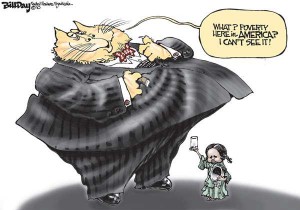 I seem to remember a time when people actually cared about poverty, when poverty was something that society actually wanted to alleviate, when poverty was the social ill and not poor people. That unfortunately was a long time ago.
I seem to remember a time when people actually cared about poverty, when poverty was something that society actually wanted to alleviate, when poverty was the social ill and not poor people. That unfortunately was a long time ago.
Almost 15% of Rhode Islanders live in poverty, close to 155,000 of our mothers and fathers, our sisters and brothers, our daughters and sons. According to the 2013 RI Kids Count Factbook, “[t]here are 39,900 poor children in Rhode Island, 17.9% of all children.” One out of ten RI seniors lives in poverty. In a civilized society that is supposed to take care of the less fortunate among us, this should be totally unacceptable. In today’s America, this is just another day in paradise…
There is a lot of discussion about the “middle class,” and about how to “strengthen” it. But there is generally little discussion about poverty, its causes, consequences, and solutions (yes… solutions). When there is discussion about the plight of the poor, it is generally to blame them, either indirectly or directly, for their circumstances. This is not only offensive to the many, many folks who live their lives every day struggling to make ends meet, it completely ignores the economic realities facing the country and the social bases that perpetuate inequality and inter-generational poverty.
A Google News search for “poverty” yields 149,000 results. The same search for “deficit” brings back over 1.2 million results. I’m not sure why this is the case, but I feel the lack of discussion about poverty in the public realm perpetuates the problem, making poverty less visible and therefore “ignorable.” The closest thing to a full public debate on poverty in recent years was John Edward’s campaign theme of “Two Americas” leading up to the 2004 and 2008 presidential elections. And while that was particularly striking to me given the state of electoral politics, it was no Lyndon Johnson’s “War on Poverty” ad.
To this point, I am glad that Dem Whip Steny Hoyer recently announced the Task Force on Poverty and Opportunity, if for no other reason than to bring additional attention to a persistent and growing problem. Equally, I am glad that Rep. David Cicilline has been appointed to it as he is one of the most vocal in Congress about poverty and has been working on his plan for two years to further boost American manufacturing.
These manufacturing jobs would be in sharp contrast to the low-wage work, particularly part-time work, that has been the norm during America’s economic malaise that many people call a “recovery.” When almost 60% of the total number of jobs created after the recession officially ended is low wage occupations, should we even call it a recovery? Moreover, the recession’s effects on employment highlight the need for non-employment based programs to reduce poverty. Focusing only on programs to enhance the income of those who are working, while important, does nothing to help those who are unemployed. And the longer folks lack a job, the harder it is for them to find another.
Empirical research shows that the loss of a good job during a severe downturn—the job-loss pattern of this downturn—leads to a 20 percent earnings loss lasting 15 to 20 years. Earnings losses are more severe for long-term unemployed workers who run a greater risk of dropping out of the labor force and falling into poverty.
 It’s important to understand that the policies and programs focused on reducing poverty actually work…, you know, when they’re allowed to work. There are things that can (and should) be done to alleviate poverty in this country, especially in times like these. When the economy was destroyed by those who have everything but wanted more, forcing misery and destitution on millions of Americans through no fault of their own, the most important thing to do is help ensure people can improve their lives.
It’s important to understand that the policies and programs focused on reducing poverty actually work…, you know, when they’re allowed to work. There are things that can (and should) be done to alleviate poverty in this country, especially in times like these. When the economy was destroyed by those who have everything but wanted more, forcing misery and destitution on millions of Americans through no fault of their own, the most important thing to do is help ensure people can improve their lives.
I hope this task force will help find more creative solutions to reducing poverty, showing the same sense of seriousness and urgency that prompted Lyndon Johnson to push the Economic Opportunity Act of 1964 through Congress. They could start by raising the minimum wage, increasing the EITC benefit, prosecuting wage theft, making it easier to join a union, and truly helping the unemployed with job training, entrepreneurship assistance, long-term unemployment benefits, stimulus spending, and even subsidized work. Maybe then we’ll see another significant decline in poverty as was seen throughout the 1960s.
]]>
With the exciting news that Kate Brock is moving on from Ocean State Action to take a policy position in Governor Chafee’s administration, I was thinking about who could be the next Director of Ocean State Action. I say this because Ocean State Action is probably one of the most important, if not the most important, progressive organizations in the state. Over the years, they have been able to shape the debate in Rhode Island, elect progressive candidates to the General Assembly, and push for more progressive policies that benefit all Rhode Islanders. Admittedly, they have not been 100% successful, but more often than not their success lies in advocacy, movement building, and adding the progressive perspective to policy debates.
Here are some of my thoughts about who (in alphabetical order).
- Sam Bell – Currently the State Coordinator for the Rhode Island chapter of the Progressive Democrats of America (taking over after I went to grad school), Sam is young and smart and has really jumped into his role at the RIPDA. He’s also a student at Brown University.
- Kristina Fox – Currently the Organizing Director at Ocean State Action, Kristina is super energetic and has been a workhorse of progressive organizing. Kristina was an organizer for UNITE HERE! Local 217 and helped win contracts at the Westin Hotel and the Dunkin Donuts Center. She just recently took over as one of the organizers for Drinking Liberally as well.
- Mark Gray – Currently the “Where’s the Work?” Project Organizer at Ocean State Action, Mark looks into why there is such a dire lack of jobs in the state. Previously, Mark was with Clean Water Action, handling recruitment and training of community organizers.
- Libby Kimzey – Currently Director of Programs at Capital Good Fund, Libby runs their tax assistance site and develops financial coaching curriculum for low-income Rhode Islanders. Libby is a tireless advocate and her energy was instrumental in getting Teresa Tanzi elected in 2010. She also worked with Ocean State Action and Common Cause.
- Zack Mezera – Currently an Organizer at Providence Student Union with Aaron Regunberg, Zach is also a Student at Brown University studying education policy.
- Aaron Regunberg – Currently the Director at Providence Student Union and Organizer for IDEA, Aaron is a great strategist and thinker about education policy. A case in point, Aaron helped organize the fantastic student-led NECAP testing that brought out about 50 people, and most of them failed it. This is reshaping the entire conversation about testing in the state.
- Marti Rosenberg – Marti is one of the most revered progressive activists in the state, working on numerous campaigns in the state for as long as I can remember. She was Executive Director of Ocean State action until she stepped down in 2006 to work for U.S. Action in DC. Back in RI, she became Director at New Roots.
- Ray Sullivan – Currently the Campaign Director at Marriage Equality RI and RI United for Marriage, and with any hope he’ll be unemployed when the session ends (because we’ll have marriage equality). Ray has a wealth of experience, having worked as Communications Director for the RI Democrats, RI State Director for Obama for America, and representative of Coventry from 2005 to 2010.
This is not at all a full list, and I’m certain that potential candidates will come out of the woodwork for this important position. What’s top of mind for me is that I hope the next Director does NOT come at the expense of the good work being done at another organization. Whoever the next director is, we need to keep building the Progressive movement in the state.
]]> So, yesterday was the day when Senate President Teresa Paiva Weed threw down 25 bills that she hopes will “improve Rhode Island’s business climate and its position on national business-friendliness surveys.” After years of bad decisions and then paralysis, the General Assembly now has a collection of bills to review that stem from the recommendations set forth in Moving the Needle, a joint report by the Senate Policy Office and the business backed policy group RIPEC.
So, yesterday was the day when Senate President Teresa Paiva Weed threw down 25 bills that she hopes will “improve Rhode Island’s business climate and its position on national business-friendliness surveys.” After years of bad decisions and then paralysis, the General Assembly now has a collection of bills to review that stem from the recommendations set forth in Moving the Needle, a joint report by the Senate Policy Office and the business backed policy group RIPEC.
Before I look into the actual legislation, I wanted to make a general comment about the obsession that people have regarding national business rankings. Rhode Island all too often gets hung up on its self-defeating cynicism and inferiority complex. Rather than looking at the assets that exist in the state and developing a plan to use those assets to grow the economy and support the businesses that currently exist, policymakers seem obsessed with how we rank nationally. People generally forget that before the global economy went down the toilet, Rhode Island had an unemployment rate that matched the national average. A lot has happened in the past 6 year, but in March 2007 the state’s unemployment rate was 4.8%. Aside from the global recession, I’m not sure the structure of every state’s economy has changed all the dramatically.
One word of advice would be to just stop looking at national ranking. Rhode Island is not Texas. Rhode Island will never be Texas. The only way Texas will ever be relevant to Rhode Island is if there is something very specific that Texas does that Rhode Island may want to replicate.
I humbly offer my comments about specific pieces of legislation while acknowledging that overall much of it makes sense, but will likely only be marginally beneficial.
- Division of Economic Data and Information: This, to me, seems like it should exist within the Economic Development Corp. But aside from where the function sits, gathering detailed economic data, analyzing that data, and using it to inform strategy is critical to growing the economy. Equally important, though, is that this needs to be something much more than a person who merely aggregates information from the Division of Labor and Training.
- Long-Term Strategic Visioning Document: Planning is good and every successful business and government does it. Rhode Island should do it too. Something that has always frustrated me about Rhode Island is its lack of implementation. If one were to do a scan of the past few years, they could find a whole assortment of studies, economic development plans, guidance documents, etc. But what the state has not yet done, what it seems the state is incapable of doing, is developing an implementation plan, a governance structure to facilitate the execution of the implementation plan, and granting it the authority and autonomy to do it. Again, I think much of this should be housed in the RIEDC.
- Commerce & Workforce Coordination Cabinet: I’m all for cross-departmental coordination, but I fear this may just be another meeting that people have to attend. I think it comes down to how much autonomy it will have to offer recommendations for the long-term strategic vision, how willing this or any Governor is at listening to and incorporating that advice, and how serious public officials will be with the task at hand.
- Business Presence on Statewide Planning: Planning for the state’s transportation, water system, affordable housing, growth centers, economic development, etc. is a skillset that business may not have. I’m fairly indifferent about including some business presence on the State Planning Council to incorporate some additional information that they may not be getting, so long as they let the professionals do their jobs.
- Preserving the Renewable Energy Fund: Yes please. Additionally, I would boost the fund to at least $10 million and provide low interest loans and limited grants to those who would like to invest in renewable energy for residential properties.
- Back to Work Rhode Island: I have very mixed feelings about this. On the one hand, unemployed Rhode Islanders can quickly become irrelevant in a rapidly changing labor market. Ted Nesi recently highlighted this when he asked if Rhode Island is suffering from hysteresis. The longer an unemployed worker is out of a job, the less appealing they become to potential employers. If for nothing else, getting some skill training and having a recent job listed on a resume makes me want to support this. On the other hand, I wonder what the oversight mechanism will be. I can picture unscrupulous employers abusing this system and churning though workers on an ever-repeating 6 week basis (think restaurants, retail, hospitality, etc.) without staff time dedicated to oversight.
- Childcare for Participants in Workforce Training and Childcare Assistance Pilot: YES. This is critically important for single parents who want get job training but cannot afford child care. I would also add transportation vouchers for them to get to and from training.
- Enhanced Jobs Match:The state should be thinking more creatively about linking the unemployed to employment opportunities, especially considering the dwindling funds for job training. The state needs a system that better links the supply of skills that the unemployed has with the demand for skills that employers need. If there is a huge unmet need for a prolonged period of time, then training funds should be used to meet that need. The problem is, and it is no small problem, it will take more time to screen candidates at the local One Stops, which means if the state doesn’t put more resources to this important task, fewer people get served. If DLT needs help with this system, they merely have to tap the vast network of tech folks in Providence who could probably design and build a better system than what we have over the weekend… while they sleep.But more to the point, Rhode Island needs more than just this. To put it bluntly, the public workforce system is broken. In particular, it is underfunded and operates in silos. And in Rhode Island, the folks at Workforce Solutions of Providence / Cranston don’t have the same level of authority as the folks who work at Workforce Partnership of Greater RI. The former are city employees, the latter are DLT employees with much greater access. Also, there are not enough people in the public system who can speak Spanish. I wrote a report for the City of Providence last year called Rethinking Workforce Development for Providence’s Labor Force that details a lot of the issues that make the system inefficient and ineffective. The system needs more than a new website.
- Help Former Students Finish Their Degree: It’s a good idea to help people get their degrees, but there are a lot of reasons why people leave college prior to completion: transportation, shift change, child care, used up Pell grant, etc. Communicating with students to get them to finish is a good thing, but someone needs to actually do it.
- Reverse Transfer: This would allow for credits earned for a Bachelor’s degree to be transferable toward an Associate’s degree at CCRI. Might as well, but it will likely be underutilized.
- Economic Development Tax Credit Accountability Act and Tax Credit Statement of Purpose: Yes, but EVERY SINGLE tax credit and expenditure offered by the state should be reviewed for their cost and effectiveness at generating economic growth. Any tax credit or expenditure that is shown to not generate an appropriate level of growth to justify its cost should be eliminated.
- Restore Historic Tax Credits: Rhode Island, I want you to understand that if you do this, it will cost a LOT of money.
Much of what came out yesterday is non-controversial and fairly common sense. To quote a colleague: “Congratulations to the Rhode Island Senate for formulating a plan to get us out of the recession, 4 years after it officially ended. I knew you could do it.” The unfortunate reality is that it will take a while for the state to grow out of the recession. This is just the first step.
]]> Andy Cutler from Cutler and Company has started a unique citizen diplomacy project called Smaller Cities Unite! The premise is actually quite simple, and pretty awesome.
Andy Cutler from Cutler and Company has started a unique citizen diplomacy project called Smaller Cities Unite! The premise is actually quite simple, and pretty awesome.
He is creating a new model for connecting cool, smaller cities (those with less than 1.5 million population) across the world. Smaller Cities Unite! seeks to form mutually beneficial collaborations among partner cities on multiple levels: student engagement, economic development, arts and culture, policy, and entrepreneurship.
Andy is recently back from his trip to Copenhagen, the first partner city included in Smaller Cities Unite! While there, he met with 50-60 individuals over the course of about 11 days. Why Copenhagen? There are several reasons, namely:
- Both cities are amongst the first settled on their respective continents (Copenhagen in 1137 and Providence in 1636);
- Both are “college” towns rich in academic assets (Copenhagen has 14 colleges and universities and Providence has 7);
- Similar in geographic size (Copenhagen encompasses 34 square miles and Providence 20.5 square miles); population size (Copenhagen has 1.2 million residents and Providence has 180,000, but the Greater Providence Area has upwards of 1 million and is the 2nd largest city in New England and represents the 37th largest metro area in the U.S.)
- Both cities are globally acclaimed for their arts and design communities;
- Both cities are “gateway cities” (Copenhagen is not only a gateway city to Scandinavia, but also to most of Western Europe; Providence is a gateway city along the I-95 corridor in the Northeast Region of the U.S. stretching from Maine to Washington, D.C.)
- Language is not a barrier between Providence and Copenhagen as over 80% of Danes generally speak English.
But more importantly, Copenhagen does some things very well that Providence can learn from and Providence does things very well that it can teach Copenhagen.
I sat down with Andy on Wednesday to interview him about his experience. Watch the video here:
One of the most important themes from his trip is that Copenhagen is very receptive to this sort of partnering, especially because it would be a mutual learning experience. Smaller Cities Unite! is just as much about sharing information as it is collecting information. Says Andy, “we weren’t just asking, we wanted to give too.”
- Copenhagen is a world leader in bicycle infrastructure design for cities, something that would be incredibly helpful as the Providence Bicycle and Pedestrian Advisory Commission develops strategies for Mayor Angel Taveras to promote biking and walking in Providence.
- Copenhagen (and Denmark) has committed to become completely energy independent by the year 2050. And to demonstrate its seriousness, the country generated 40% of its energy from renewable sources by 2012, eight years ahead of schedule. As the Deepwater Wind project continues to move forward, there are likely lessons to be learned from Copenhagen’s experience with renewable energy.
- Betaspring in Providence is unique and innovative in its approach to entrepreneurship and is recognized globally for the effectiveness of its 12-week accelerator program at growing, scaling, and funding companies. Are there opportunities for the numerous entrepreneurs in Providence and Copenhagen to connect, partner, and break into new global markets? There’s only one way to find out.
- Providence has a much deeper sense of community and a much more tightknit network of support and collaboration, particularly for tech and design, than does Copenhagen. Establishing this framework in Copenhagen and between Providence and Copenhagen will likely benefit both cities.
Establishing the initial connection was just the first step. Andy is now thinking about what structures are necessary to make Smaller Cities Unite! a sustainable network of interchanges between Providence and Copenhagen to actualize the transfer of knowledge and ideas on an ongoing basis. As the private sector was the initial source of the funding, they are likely to be necessary for future funding. Additionally, there may be opportunities for foundation grant funding, or even public sector funds to promote and expand the project. Anyone who is interested in donating time, resources, or ideas for the project should contact Andy Cutler at andy@cutlerandcompany.com or @andypvd.
Finally, Andy is grateful to his initial donors for this trip and wanted to identify them by name for their generous support.
- Liz Eddins of Eddins Design
- John Hazen White of Taco
- Steven Lane of Ximedica
- Susan Mocarski of Cleverhood
- Soren Ryherd of Working Planet and Retail Project RI
- Allan Tear of Betaspring

 I’ve always been fascinated with hearing people’s stories. To learn about another person’s experiences and history is to begin to truly understand who they are. I’ve always considered peoples’ previous learned experiences and the circumstances from which they came as the fundamental foundation for their existing belief system.
I’ve always been fascinated with hearing people’s stories. To learn about another person’s experiences and history is to begin to truly understand who they are. I’ve always considered peoples’ previous learned experiences and the circumstances from which they came as the fundamental foundation for their existing belief system.
Rhode Islanders will have the opportunity to hear one another’s stories as Barrington Public Library, East Providence Public Library, and Providence Community Library are collaborating to create a Human Library in Rhode Island on Sunday, March 3rd from 1-5pm (snow date March 10th) at Rochambeau Library, 708 Hope St., Providence. The Human Library Rhode Island is a living, breathing library where humans are the books and the stories are their lives. Just as memoirs and autobiographies teach us to see the humanity in people different from us, the human books tell of their own lived experience, breaking down assumptions, biases, and misunderstanding with every word.
Based on a Danish project, now with worldwide participation, the Human Library‘s aim is to allow people to interact with other members of their community with whom they might not otherwise have contact, or who they might have preconceptions about but want to understand. This is a great opportunity to bring Rhode Islanders together in the public library for an afternoon of conversation, discovery, and growth.
Here are a few samples of what you could hear:
Immigrant or Outsider?
I grew up in an environment of low-tolerance for Mexicans and personally experienced prejudice as a child. I have been made to feel like an outsider in childhood and as a young adult. I also grew up watching some of my friends snatched and deported to Mexico. I thought that this was an injustice; and it made me sensitive to how it feels to lose someone you are close to. I am interested in learning what makes someone insensitive and anti-immigrant. More importantly, I would like to help change anti-immigrant sentiments in someone and provide a better understanding of what it is like to be an outsider.Masks
I was born with a birthmark that covers my right cheek. Growing up, I learned to deal with the cruelty, shame and isolation that come with being so obviously different. For 12 years, I wore a heavy make to cover the birthmark, and I lived in hiding for those terrible years. When I was 29, I removed the make-up and began the journey to living and loving who I am. That journey continues and it continues to heal me and to heal others as well. I would like to share this story and this journey because I am now an open book.Searching for Meaning in Outside War
I am a retired U.S. Navy Captain and current high school math teacher. I love the United States Navy. I think it is one of America’s greatest institutions, one which gave meaning to my life for 25 years. I do not, however, love militarism and I do not love war. I am a pacifist. In a highly militarized society, I have come to believe that war is never a good solution or even a necessary one. It is not the kind of meaning I want to define my life. As a teacher, I find meaning in doing very small but substantive good. I can make a small but positive difference every day. This is how I want to define my life. This is how I want to be remembered.
For more information, visit: http://www.

